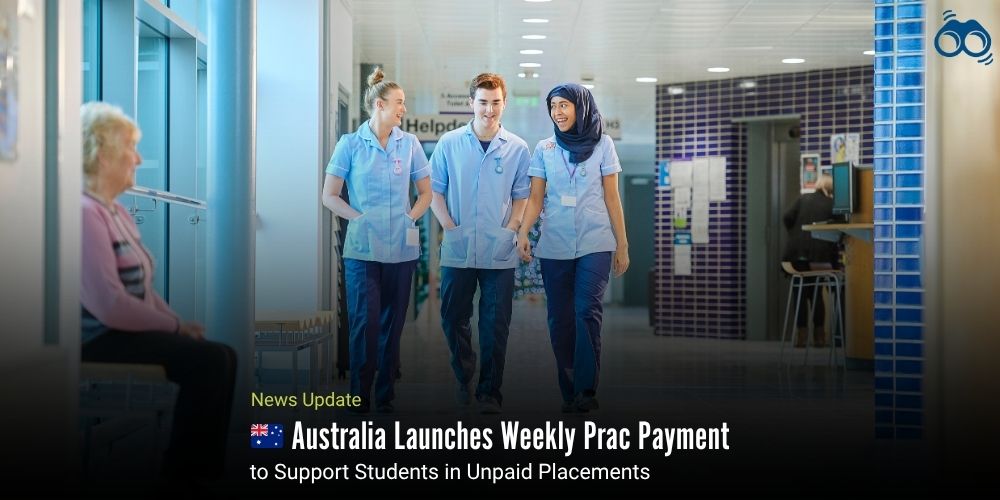New Government Initiative Provides $331.65 Per Week to Support Students in Essential Fields
Prac Payment Scheme Launched to Alleviate Placement Poverty Among Students
To reduce financial hardship faced by students undertaking mandatory unpaid placements, the Australian government has launched a new initiative providing direct financial assistance. This programme seeks to address placement poverty, a persistent issue affecting students required to complete practical training as part of their higher education. Officials have stated that eligible students in fields such as nursing, teaching, midwifery, and social work can now apply for the Prac Payment, which takes effect this week. Under this scheme, students will receive $331.65 per week, helping to alleviate financial pressure and ensuring they can complete their training without economic strain.
Moreover, authorities have emphasised that the payment will benefit thousands of students enrolled in programmes with extended unpaid placements, which often make it difficult to afford essentials such as housing and food. Nursing students, for instance, may be required to complete up to 20 weeks of placement, while social work students may undergo up to 26 weeks, both of which are essential yet financially demanding experiences.
Announcing the scheme, Prime Minister Anthony Albanese confirmed that TAFE nursing students could apply for the Prac Payment immediately, while university students would be eligible from 1 July. He further stressed that the initiative aims to enable students to focus on their education without the financial burden associated with unpaid placements. Officials added that students in nursing, teaching, midwifery, and social work have long struggled with placement poverty, and the payment is intended to ease their burden and support them throughout their studies.
Furthermore, government representatives have highlighted that this measure directly addresses long-standing concerns raised by students and educators regarding the lack of financial support during unpaid placements in essential fields. By ensuring a consistent income, the government aims to help students remain in critical professions and prevent them from dropping out due to financial difficulties. Officials reiterated that students in nursing, teaching, midwifery, and social work have often struggled to cover basic expenses, making the Prac Payment an essential intervention.
Additionally, authorities noted that the initiative is a response to continuous demands from students and educators for greater financial support in essential sectors such as healthcare and education. By securing a reliable income during placements, the government hopes to retain students in these industries and support their academic journey. However, they clarified that allied health students would not be eligible for the payment, despite having similar placement requirements, an exclusion that has raised concerns within the academic community.
Complementing the Prac Payment, officials also announced a 20% reduction in HECS debts for eligible individuals, which will be included in the first legislative bill when Parliament reconvenes in July. Both initiatives are part of broader education reforms under the Australian Universities Accord, reflecting the government’s $427.4 million commitment to enhancing accessibility and affordability in higher education. Ultimately, the government’s efforts aim to strengthen financial support for students in essential fields, ensuring they can complete their academic and professional training without undue financial hardship.
Editor’s Note:
The Prac Payment initiative is a long-overdue intervention that finally acknowledges the financial struggles faced by students completing mandatory unpaid placements. For years, aspiring professionals in nursing, teaching, midwifery, and social work have had to endure placement poverty, forced to balance intense practical training with the financial stress of unpaid work. The Australian government’s decision to provide $331.65 per week to eligible students is not just welcome, it is essential. However, while this measure offers much-needed relief, it does not go far enough. Allied health students, despite facing similar placement requirements, have been excluded from this support, raising valid concerns within the academic community. Moreover, the wider structural issues surrounding unpaid placements still need to be addressed.
As per Skoobuzz, if Australia truly values its future workforce in essential sectors, financial support must be comprehensive, equitable, and sustainable, not selective and inconsistent. The government has taken a step in the right direction, but this cannot be the final step.














0 Comments (Please Login To Continue)